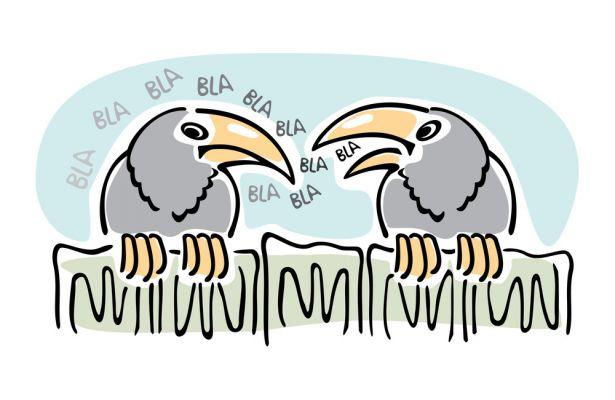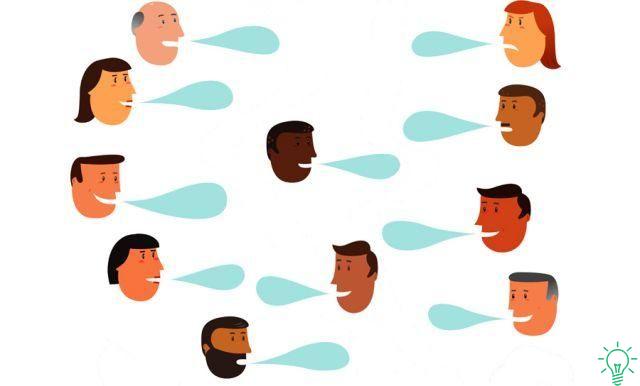
We tend to consider perseverance as a virtue, it is a value that our society extols. But persevering isn't always good. There is a time to endure and a time to give up. People with "woodpecker syndrome" don't know exactly when to stop and leave a situation, so they keep insisting.
What is Woodpecker Syndrome?
Woodpecker syndrome is the tendency to persevere in an idea, although that doesn't lead to constructive dialogue, according to University of Chicago psychologist Nadia Persun. It occurs when a person is unwilling to give in, which produces a vicious cycle of toxic discussions in which the same arguments are repeated over and over again, without any progress.
This communication style ends up generating a toxic vicious circle in which no one wins. Ideas repeat themselves indefinitely. Nothing is resolved. The problem continues to grow and the relationship deteriorates more and more. As a result, the people involved end up exhausted and drift away.
How to detect woodpecker syndrome?
1. The stubborn person clings to his argument, as if his life depended on it.
2. He does not accept reasons or evidence against his point of view, even if it shows him wrong.
3. The person repeats the same topic over and over again, as if he were a woodpecker, piercing the skull of his interlocutor, in the hope that his ideas can find their way.
4. The person does not give up, so take advantage of the slightest opportunity to pick up on his or her recurring topic.
5. Sensitivity towards the other decreases, therefore the connection and the possibility of structuring the speech in an adaptive way according to the interlocutor's responses are lost.
The truth is that “a mixture of distorted good intentions and personal justice, loaded with anger and repetition, does not produce a healthy way of communicating. Spikes are persistent, critical, and persistent from their point of view. They are prone to blame others, do not listen and enthusiastically repeat the same argument because their goal is not to communicate, but to win at all costs, which leads to compromising trust and losing all hope of truly connecting and listening to each other. story ”, as Persun points out.
How do people feel hammered by a "woodpecker"?
People dealing with someone with woodpecker syndrome often feel extremely frustrated. They first try to find all kinds of arguments to explain their point of view, but when they realize that it is useless, they usually end up emotionally disconnecting, using the shield of silence and indifference.
These people often feel trapped in a dead end, so they can also develop learned helplessness. They simply give up and, to avoid conflict, they give in to the discussion of the other, even if they disagree and it is not a good idea.
How to avoid woodpecker syndrome?
We can all, at times, behave like "spikes". We behave this way when we become too attached to our ideas and the desire to win dialogue prevails in us. To deactivate this "mode" we must realize that the most important thing is to reach a solution, prioritizing understanding. When we prioritize solution over discussion, we can go further and be willing to accept better ideas, wherever they come from.
We must also keep in mind that sometimes, in order to move forward, we have to go back. If a person is too stubborn to advance in dialogue, it will be better to stop. Sometimes, when the topic isn't important, it's not even essential to be right. Sometimes it's better to choose the relationship than to be right.


























